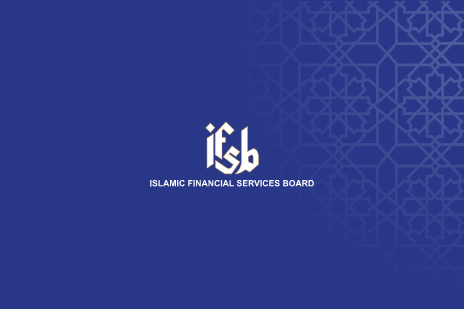
12th Islamic Financial Services Board Summit – Core Principles for Islamic Finance: Integrating with the Global Regulatory Framework
The Rixos Almaty Hotel ALMATY, KazakhstanThe Summit started with a Keynote Address (via live video) by The Right Honourable Karim Massimov, the Prime Minister of the Republic of Kazakhstan at the Opening Session of the 12th IFSB Summit. The host, H.E. Kairat Kelimbetov, Governor of the National Bank of Kazakhstan has gracefully launched the Islamic Financial Services Industry Stability Report 2015. 21 chairmen and speakers who were governors, deputy governor, heads as well as senior financial sector supervisors and experts from international financial institutions participated as speakers who panelled the following sessions: • Global Overview of the Islamic Financial Services Industry (IFSI): Trends and Policy Developments • New Regulatory Developments and the Impact on the Islamic Financial Services Industry • Role of the Core Principles for Islamic Finance in Enhancing Regulatory Consistency and Resilience of the Industry • Enabling Framework for the Assessment of Regulatory and Supervisory Regimes, and • Panel Discussion on "The New Silk Road: The Importance of Regulatory Cooperation for Cross-Border Integration" The Gala Dinner Keynote was delivered by Dr. Hamed Hassan Merah, the Secretary-General of the Accounting and Auditing Organisation for Islamic Financial Institutions (AAOIFI) on the evening of 20 May 2015. The 12th IFSB Summit was attended by more than 118 delegates from 25 countries comprising of senior officials from supervisory and regulatory bodies as well as representatives from international institutions, market players, accreditation, law firms, IT providers, insurance and Takāful, academia as well as other stakeholders of the Islamic financial services industry. Event Snapshots Programme - Event Session(s) Date Time Topics Day 1 18/05/2015 09:30 - 17:30 Focus Group Meeting on the Strategic Performance Plan 2016 - 2018 (For IFSB Members Only) Day 2 19/05/2015 PRE-SUMMIT EVENTS 09:00 - 10:00 Pre-Summit Event-1 : Meet the Members and Industry Engagement Session 10:00 - 11:00 Pre-Summit Event-2 : Industry Development Session by The World Bank (Free of Charge) 11:00 - 11:30 Coffee and Networking Break 11:30 - 13:00 Pre-Summit Event-3 : INCIEF - MIFC Business Forum (Free of Charge) 13:00 - 14:00 Lunch 14:00 - 16:00 Pre-Summit Event-4 : IFSB-IRTI Session on Mid-Term Review of the IFSI Development: Ten-Year Framework and Strategies (Free of Charge) 14:00 - 14:15 Registration 14:15 - 14:25 Opening and Welcoming Address 14:25 - 16:00 Presentation and Discussion on Fostering Integration of the IFSI: Progress of Initiatives and Challenges Faced by the Islamic Finance Jurisdictions 16:00 - 17:30 Pre-Summit Event-5 : Kazakhstan Country Showcase (Free of Charge) 17:30 - 18:00 Coffee and Networking Break 20:00 - 22:00 12th IFSB Summit Welcome Dinner (Hosted by the National Bank of Kazakhstan) For Summit Registered Participants Only Day 3 20/05/2015 12TH ISLAMIC FINANCIAL SERVICES BOARD SUMMIT - DAY 1 12TH ISLAMIC FINANCIAL SERVICES BOARD SUMMIT - GALA DINNER 08:30 - 09:30 Registration 09:30 - 10:30 Opening & Keynote Session 10:30 - 11:00 Coffee and Networking Break 11:00 - 12:30 Session 1 : Global Overview of the Islamic Financial Services Industry (IFSI): Trends and Policy Developments This session aims to analyse the current level of development of the legal and regulatory frameworks in Islamic finance, with a focus on the performance and potential growth of the industry. 12:30 - 14:00 Lunch 14:00 - 15:30 Session 2 : New Regulatory Developments and the Impact on the Islamic Financial Services Industry The session aims to highlight the new regulatory developments in the global financial system that seek to promote financial stability, as well as the impact of these developments on and the challenges for regulatory and supervisory authorities and institutions offering Islamic financial services in implementing them. 15:30 - 16:00 Coffee and Networking Break 16:00 - 17:30 Session 3 : Role of the Core Principles for Islamic Finance in Enhancing Regulatory Consistency and Resilience of the Industry This session aims to explore measures to bring the IFSI to its next level of development by enhancing consistency in supervision and implementation of global standards across borders. This stresses the need for having a minimum international standard on sound regulatory and supervisory practices for the effective supervision of the IIFS, which would help enhance the resilience as well as protect the consumers and other stakeholders of the industry. 19:00 - 22:00 12th IFSB Summit - Gala Dinner 19:00 Welcome Reception 20:00 Gala Dinner Day 4 21/05/2015 12TH ISLAMIC FINANCIAL SERVICES BOARD SUMMIT - DAY 2 09:30 - 11:00 Session 4 : Enabling Framework for the Assessment of Regulatory and Supervisory Regimes This session focuses on the need to have an enabling framework that meets the pre-conditions of sound regulation and supervision in order to facilitate the development of a surveillance infrastructure for Islamic finance. 11:00 - 11:30 Coffee and Networking Break 11:30 - 13:00 Session 5 : Panel Discussion on "The New Silk Road: The Importance of Regulatory Cooperation for Cross-Border Integration" This session aims to explore the opportunities offered by the new Silk Road and emerging Islamic finance jurisdictions in Asia and Europe as well as the importance of regulatory cooperation to grow and develop the IFSI in a manner that encourages cross-border integration moving forward. 13:00 - 14:00 Lunch Downloadable Document(s) 1.) Event Session(s) - PDF Format 2.) The Intercontinental Hotel : Hotel Reservation Form 3.) The Ritz Carlton Hotel : Hotel Reservation Form 4.) The Rixos Almaty Hotel : Hotel Reservation Form 5.) Visa Information Form to Almaty